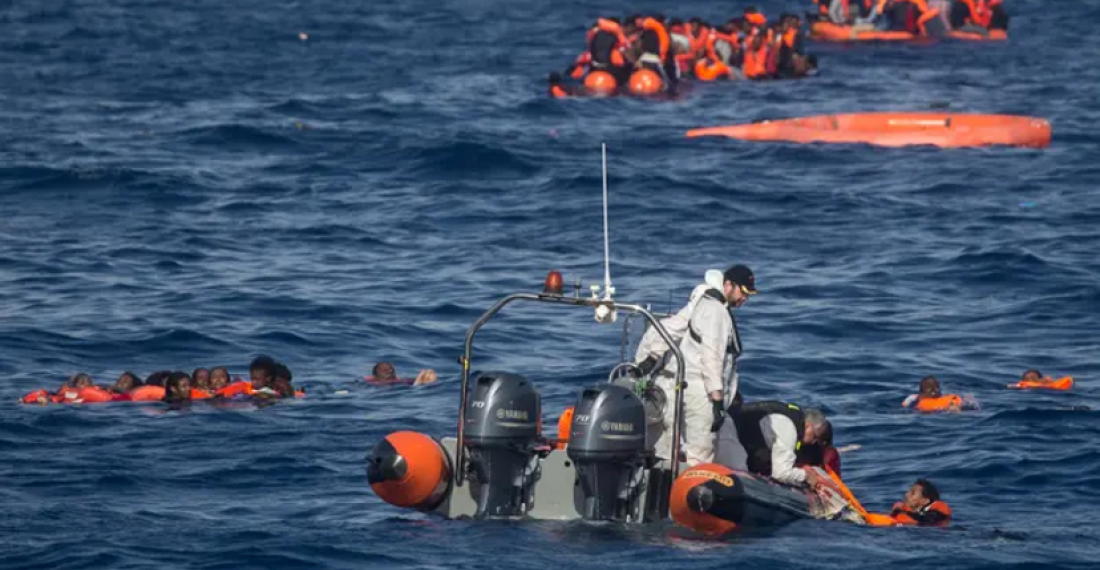In the face of mounting criticism, Frontex, the European Border and Coast Guard Agency, has reached a moment in its history where it has to redefine itself. The European Commission must take responsibility and deal with the Agency's problems head-on, writes Maximiliaan van Lange in this op-ed for commonspace.eu.
One of the largest and most expensive agencies of the European Union (EU) is confronted with an unprecedented crisis of confidence. Frontex has faced a list of serious accusations in recent years, ranging from being an accomplice to human rights violations to being the actual culprit.
Frontex was established in 2004 by the European Commission and is the largest of the more than 40 official European agencies. The Agency is in charge of border control in the European Schengen Area and coordinates with the border and coast guards of the Schengen Area member states.
In response to the 2015-16 European migrant crisis, the European Commission proposed in 2015 to extend Frontex's mandate and transform it into a fully-fledged European Border and Coast Guard Agency. The Agency currently has a wide range of instruments to monitor and coordinate a common, effective approach to protecting the EU's external borders. These include a pool of at least 1,500 border guards and other relevant staff to be deployed in rapid interventions.
In recent years, however, the Agency has been accused of a lack of transparency concerning its activities. There are allegations that human rights at Schengen’s borders are being violated and that there is lack of transparency in the operation of the agency. Furthermore, Frontex has also been criticised for its lack of accountability to the European Parliament, and crucial information for evaluating the violation of human rights is unattainable.
According to a leaked investigative report from the European Anti-Fraud Office (OLAF) published by Der Spiegel on Thursday (29 July), Frontex presided over and helped finance the systematic illegal pushback of asylum-seekers by the Greek coastguard, as well as being aware very early on of the sometimes brutal return of asylum-seekers to Turkey. The former director of Frontex, Fabrice Leggeri, is also accused of lying to the European Parliament about the practice, and of doing nothing to prevent it. In some cases the pushbacks were even financed with European taxpayers' money.
One particular revelation in the classified report is that Frontex had been violating human rights. That there were issues has been known for some time. Pushbacks in the Aegean Sea have been taking place since 2015 and it was previously revealed that the Agency would every now and then look the other way when Greek border guards dragged a full rubber boat with refugees back into Turkish waters.
The protection of human rights is an issue of importance in all areas of EU activity; Brussels is constantly focusing on human rights violations occurring both within and outside the EU. As a key EU agency, Frontex must therefore place safeguarding and guaranteeing human rights at the heart of its activities.
The European Commission must take hard and far-reaching policy measures in dealing with the Agency to stop it from undermining its credibility and that of the wider EU. In the end, this is a sensitive issue that also falls under the responsibility of the Commission. For this reason, more strict control is required in the guaranteeing of human rights by Frontex.
The EU prides itself on defending values that are often violated elsewhere in the world. Candidate members are rigorously tested for this. Member states which violate these rules, such as Hungary and Poland, have been severely criticised or even penalised by the Commission. It is therefore unacceptable that the EU’s own, largest agency is violating these values so brazenly.
The European Commissioner for Home Affairs, Ylva Johansson is politically responsible for Frontex and she is ultimately responsible for what goes on at the EU’s external borders. One cannot exclude that the Commission's investigations may lead to infringement procedures against Greece, and the suspension of funding to Athens.
Despite the agency's increasingly rogue status, Frontex had an important job to do. The protection and monitoring of the EU’s external borders is necessary for Europe's internal security. Frontex will become a 10,000-strong organisation by 2027, but before it must put transparency high on its agenda.
At this point a full evaluation of the work of the Agency by the European Commission is necessary, and any tough measures that are needed have to ensure that trust in this important agency is restored.







